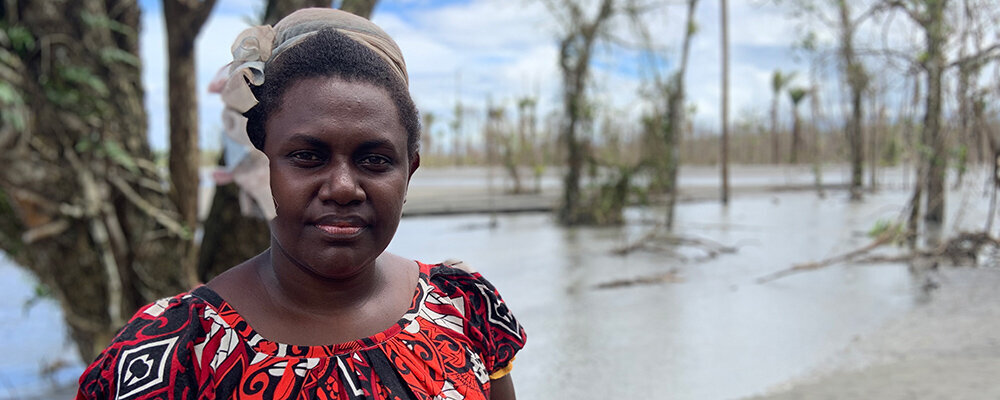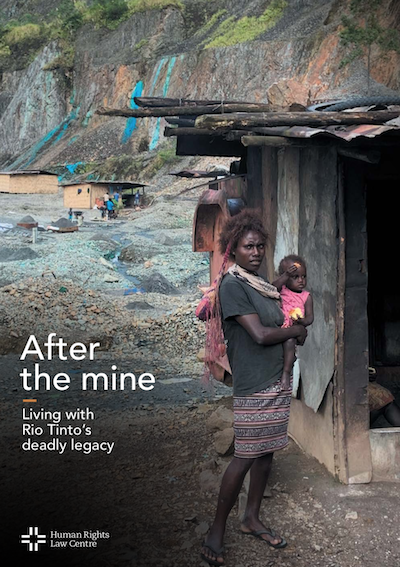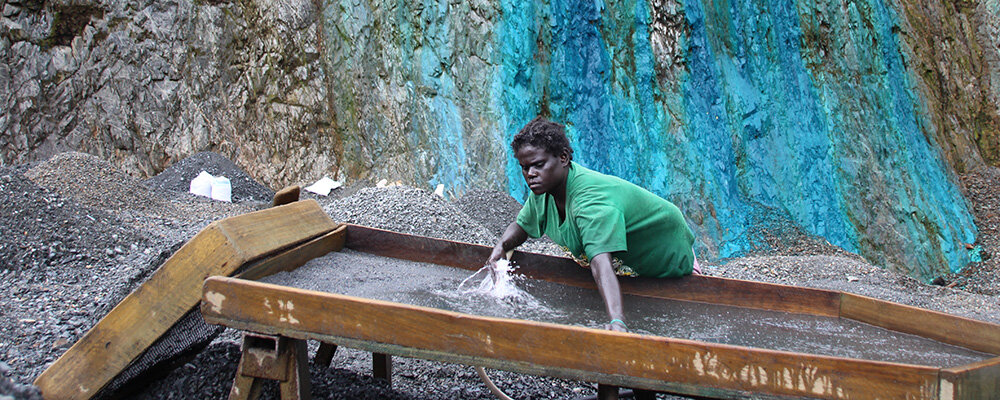After the mine: Living with Rio Tinto’s deadly legacy
REPORT | Read the report
Bougainville communities and the Human Rights Law Centre file human rights complaint against Rio Tinto for impacts of mine waste pollution
For 45 years, the Panguna copper and gold mine on the island of Bougainville was majority-owned by the British-Australian mining company, but in 2016 Rio Tinto divested from the mine, leaving behind more than a billion tonnes of mine waste.
The communities in the shadow of the decaying mine are now forced to live with rivers and water sources poisoned by copper, forests flooded with mine waste and serious health problems arising from the pollution.
Corporations shouldn’t be allowed to threaten the livelihoods of people in the name of profit. So together with communities in Panguna, the Human Rights Law Centre is pursuing justice. In September 2020, we launched a human rights complaint with the Australian Government on behalf of 156 Bougainville community members demanding that Rio Tinto take action to address its deadly legacy.
“We live with the impacts of Panguna every day. Our rivers are poisoned with copper, our homes get filled with dust from the tailings mounds, our kids get sick from the pollution.Some communities now have to spend two hours a day walking just to get clean drinking water because their nearby creeks are clogged up with mine waste.
We urgently need Rio Tinto to do what’s right and deal with the disaster they have left behind.”
After the mine: Living with Rio Tinto’s deadly legacy exposes the extent of Rio Tinto’s destruction in Panguna
Our major report, After the mine: Living with Rio Tinto’s deadly legacy, documents the human impact of Rio Tinto’s deadly actions in Bougainville.
In September 2019 and February 2020, the Human Rights Law Centre visited 38 sites and met with communities impacted by mine waste abandoned by Rio Tinto. The local people are living with serious health problems such as skin diseases, respiratory problems and pregnancy complications arising from contaminated water sources and land and crops flooded by toxic mud.
Panguna was previously one of the world’s largest copper and gold mines. The mine generated almost $US 2 billion in revenue for Rio Tinto and the Papua New Guinea Government until 1989, when an uprising by local people against the environmental destruction caused by the mine, and inequities in the distribution of its profits, forced the mine’s closure and triggered a brutal decade-long civil war..
A clear path had been identified to deal with the environmental devastation at Panguna, but in 2014, Rio Tinto divested from the mine before this could be implemented, completely avoiding the cost of the clean-up.
The impacts of the mine are severely infringing communities’ fundamental rights to food, water, health and housing.
Our report calls on Rio Tinto, and its former subsidiary Bougainville Copper Limited, to immediately commit to funding an independent assessment of the mine to identify the most urgent health and safety risks to communities and establish a substantial fund to address these problems and assist with long-term rehabilitation.
Make a donation to support
This report was co-authored by Keren Adams who leads the Corporate Accountability team at the Human Rights Law Centre. You can learn more about the team's work here.



